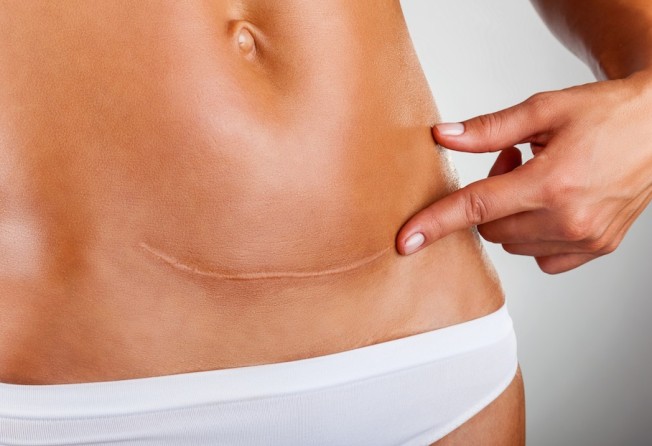Hong Kong mothers who opt for caesarean section at risk if they get pregnant again
Women opting for surgical delivery could suffer life-threatening condition in a future pregnancy

Women who give birth by caesarean section are putting themselves at risk of a potentially life-threatening condition if they get pregnant again, a Queen Elizabeth Hospital study has revealed.
Mothers with a caesarean scar on their uterus were 24 times more likely to develop the rare condition known as morbidly adherent placenta than those with an unscarred uterus.
Since 1999, some 39 mothers attending the Yau Ma Tei hospital have suffered the serious complication, in which the placenta grows deeply into the wall of the uterus and is unable to detach after childbirth.
"Application of caesarean section should be minimised, especially in those who wish to pursue another future pregnancy," said the researchers.
The condition has been on the rise in recent years, from affecting 17 babies per 100,000 a decade ago, to 79 babies between 2009 and 2013, the study found, since more Hong Kong women now opt for surgery over natural birth.
The condition is also more common among mainland mothers giving birth in Hong Kong, since they were more likely to have undergone a caesarean section or had an abortion - which also leaves scars on the uterus - said a private doctor.
Gynaecologist and obstetrician, Dr Kun Ka-yan, said such cases occurred more often among his mainland patients before the "zero quota" policy adopted in 2013 to stop them giving birth in Hong Kong.
He said that in the case of one of his patients, a 30-year-old mainland mother who had given birth twice by caesarean section, her placenta stuck very tightly to the scar on her uterus, she faced the risk of inflammation or massive bleeding after she gave birth.
"Mainland mothers who gave birth here have usually given birth before, and very often they delivered through c-section since it is very popular in the country," Kun said. "Abortion was a norm under the child control policy. These were possibly the reasons why they were more likely to suffer from the condition."
Researchers in Queen Elizabeth's obstetrics and gynaecology department analysed the medical records of 81,497 births between 1990 and 2013.
They noticed an increasing trend for mothers opting for caesarean sections - from 19.5 per cent before 2003, rising to 23.4 per cent between 2004 and 2008, to 27.1 per cent since 2009. The number of repeated caesarean sections had also increased.
Among the 39 cases with the rare pregnancy condition, most of the women had a scarred uterus from previous caesarean sections. Some had undergone other forms of intervention.
The study noted a similar trend overseas.